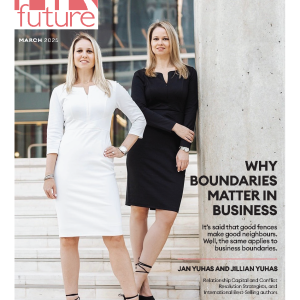The field of human resources (HR) has evolved significantly in recent years. No longer confined to administrative tasks, HR professionals are now expected to be strategic partners who contribute to an organization’s growth and success. For HR practitioners aiming to elevate their careers, an MBA can be a transformative step.
By combining advanced business knowledge with leadership training, an MBA equips HR professionals with the skills and insights needed to thrive in today’s competitive landscape.
Why HR Professionals Should Consider an MBA
HR roles are increasingly intertwined with business strategy. Whether it’s managing talent, driving organizational change, or fostering a culture of innovation, HR professionals are at the forefront of critical business decisions. An MBA provides:
- Strategic Thinking Skills: HR professionals with an MBA can move beyond operational tasks to develop and implement long-term strategies that align with business goals.
- Leadership Development: MBA programs emphasize leadership, preparing HR professionals to take on senior roles such as Chief Human Resources Officer (CHRO) or even CEO.
- Cross-Functional Knowledge: An MBA curriculum covers finance, marketing, operations, and more, giving HR professionals a broader understanding of how organizations operate.
- Networking Opportunities: MBA programs connect students with peers, faculty, and alumni who can open doors to new opportunities and collaborations.
Key Benefits of an MBA for HR Professionals
1. Enhanced Business Acumen
HR professionals with an MBA gain a deeper understanding of financial metrics, market dynamics, and operational efficiencies. This knowledge allows them to communicate effectively with other business leaders and make data-driven decisions.
2. Advanced HR Expertise
Many MBA programs offer specializations or electives in human resources, organizational behavior, or leadership. These courses delve into advanced topics like employee engagement, talent management, and workforce analytics.
3. Increased Earning Potential
An MBA often leads to higher salaries and better job prospects. HR professionals with an MBA are well-positioned for roles that command higher compensation, such as HR directors or CHROs.
4. Career Transition Opportunities
For HR professionals looking to pivot into other areas, such as management consulting or entrepreneurship, an MBA provides the necessary skills and credibility.
Choosing the Right MBA Program
When selecting an MBA program, HR professionals should consider factors such as curriculum, reputation, and flexibility. It is essential to evaluate whether the program offers courses tailored to HR and leadership development, such as organizational behavior, workforce analytics, and strategic management.
Programs that emphasize experiential learning through case studies, internships, and global immersion experiences can provide hands-on knowledge and practical skills. Additionally, leveraging MBA admission consulting services can help applicants identify programs that align with their career goals and maximize their chances of acceptance by offering personalized advice and insights into the application process.
Real-Life Success Stories
Many HR professionals have used an MBA to achieve remarkable career milestones. For example, consider Sarah, an HR manager who pursued an MBA to broaden her skill set. Post-graduation, she transitioned into a CHRO role at a Fortune 500 company, where she spearheaded initiatives that improved employee retention and productivity. Sarah credits her MBA for giving her the confidence and expertise to excel in her role.
Similarly, James, a former HR generalist, leveraged his MBA to move into a strategic role focusing on global talent acquisition. His enhanced understanding of international business dynamics and workforce planning gained during his MBA, allowed him to implement innovative hiring strategies that saved his company millions of dollars annually. These stories illustrate the transformative potential of an MBA for HR professionals.
Is an MBA Worth It for HR Professionals?
The decision to pursue an MBA is a significant one, requiring time, effort, and financial investment. However, the potential rewards—from enhanced career prospects to personal growth—make it a worthwhile endeavor for many HR professionals. An MBA equips practitioners with the tools to navigate complex organizational challenges, lead diverse teams, and contribute to strategic decision-making.
Additionally, the personal growth experienced during an MBA program—through exposure to diverse perspectives, rigorous academic training, and leadership development—often translates into greater self-confidence and professional resilience. Those who aspire to leadership roles or wish to make a broader impact on their organizations will find an MBA to be a powerful asset.
Conclusion
An MBA can be a game-changer for HR professionals seeking to advance their careers. By equipping them with strategic thinking, leadership skills, and cross-functional knowledge, an MBA prepares HR practitioners to tackle complex challenges and drive organizational success. Working with MBA application consultants can make the journey smoother and more successful for those considering this path. With the right program and support, HR professionals can unlock new opportunities and achieve their career aspirations.













